Is school lunch free in Massachusetts? Here's why it's 1 of 5 states with access for all
- Oops!Something went wrong.Please try again later.
BRAINTREE ― Lunch, for all of the nearly 1 million Massachusetts school-aged children attending public schools, is on the house.
No income limits, no paperwork, no remembering to put money on a lunch card, no scrounging for a stray dollar, no digging for coins in the couch cushions, no different meals, no stigma, no shame.
Massachusetts is one of five states, along with California, Maine, Nevada and Vermont, to extend the federal universal free lunch program through the 2022-23 school year after it ended in June. The legislative goal for January, the start of the new session, is to make the program permanent.
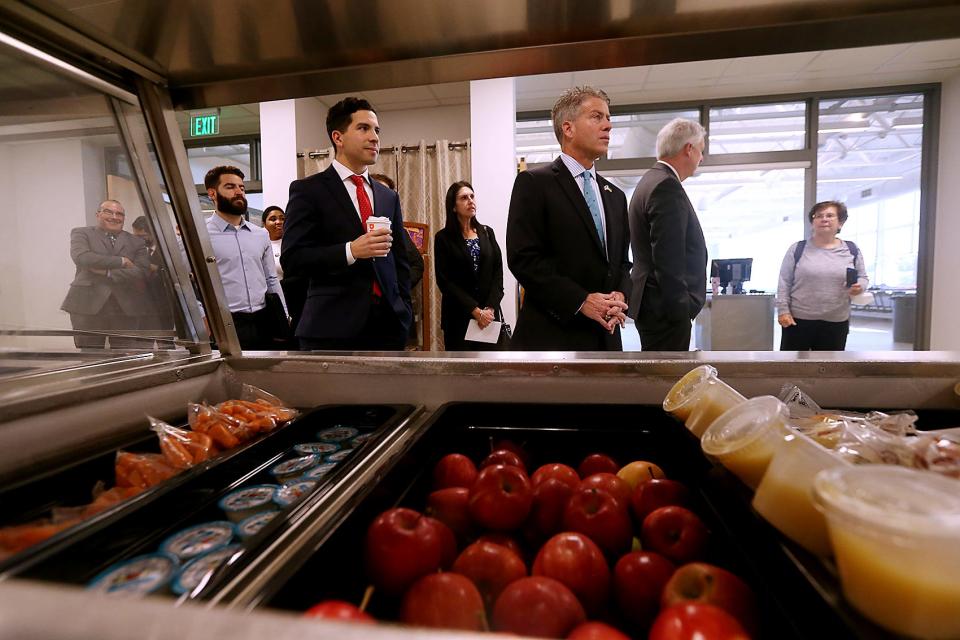
“This is a bipartisan issue, feeding children to ensure they aren’t hungry. If they are hungry, they are not ready to pay attention, to learn,” said Erin McAleer, CEO of Project Bread, a Massachusetts-based, anti-hunger organization. Project Bread, proposed the School Meals for All legislation that extended the universal free lunch program.
“Our goal is to help people access and afford food,” McAleer said, explaining that to solve hunger and food insecurity issues in Massachusetts and across the nation, a good first step is to feed school children 10 meals a week: breakfast and lunch every day. “There is no path to ending hunger without free school meals.”
Cost of living in Massachusetts:How Quincy went from a blue-collar haven to one of the state's most expensive places to live
Massachusetts legislators allocated $110M to program
After the federal government halted the free lunch program, established as a response to the COVID-19 pandemic, Massachusetts legislators made sure it was extended through the end of the 2022-2023 school year.
“It is a $110 million break for families with school-aged children in public school,” said Rep. Andy Vargas, D-Haverhill. “It’s a huge relief for families not to have to worry about the next meal.”
It was a bicameral effort led by Vargas and Sen. Sal DiDomenico, D-Everett, and supported by co-sponsors in both houses, including Senators John Keenan, D-Quincy, Walter Timilty, D-Milton, and Rep. Mark Cusack, D-Braintree.
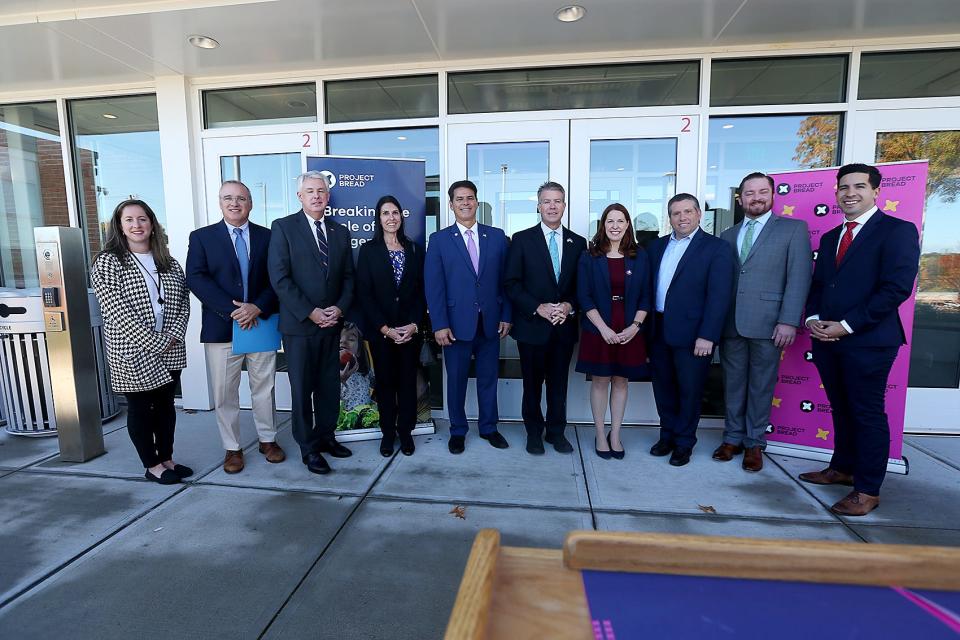
“This is a great day to celebrate real children are eating today because the commonwealth did this,” Vargas said.
Sen. Anne Gobi, D-Spencer, sees the benefit of the universal free meal program and voted in favor when it was passed in the legislature earlier in the year. She said it benefits many residents of her district, and serves as a pathway to healthier and more successful students. If the legislature pushes to make this a permanent program in Massachusetts schools, Gobi indicated that she would support passage of the measure.
Legislators, local politicians and members of Project Bread gathered Thursday at the East Middle School in Braintree to celebrate the success of the extended universal free lunch program.
How many students in state are eligible for free and reduced lunches?
School nutritionist Sarah Coughlin noted that student participation at the Braintree school where she presides over the breakfast and lunch menus has increased from 45% taking lunch in September 2019 to 66% this fall.
Statewide, some 400,000 children whose families were not eligible to participate in the free lunch program now can access the meals. Statewide, student participation has increased by 42%.
Menus revised monthly, nutritious choices abound
Coughlin reviews the menu constantly, changing it monthly to ensure that cafeteria workers cook meals children will eat: Thursday’s offering included a strawberry and banana smoothie, cold sandwiches and a Greek salad. The hot meal featured a chicken and potato bowl: chicken nuggets presented with mashed potatoes. Also always on the menu: fresh fruit and baby carrots.
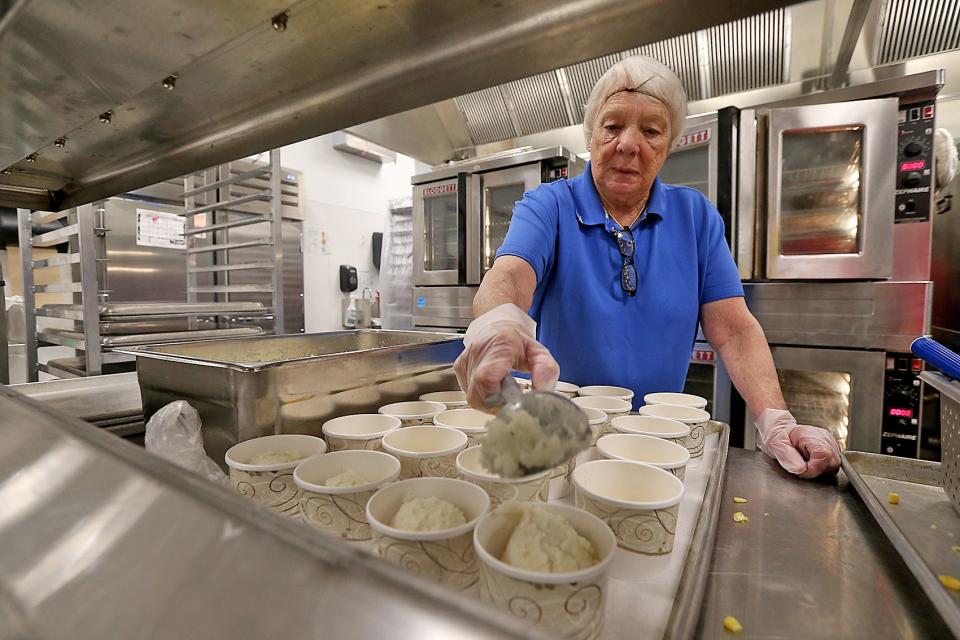
Providing both breakfast and lunch, Coughlin noted, ensures that children who “forget” to eat breakfast, whether for time constraints or because there is no food in their homes, have access to nutritious meals.
“They don’t have to worry whether there is money in their account, there is no stigma, everyone is equal,” Coughlin said.
Eating is just part of the school experience, McAleer said, like gym class. Meals are just tools, like books, pencils, paper, that children can access during a school day.
Rash of crashes:This is No. 1 culprit in vehicle vs. building crashes in city and beyond
Participating children are learning to make nutritious food choices, Keenan said. He said these are life-long habits that ensure youngsters grow up healthier and more successful, and that poor eating habits do not later trigger health issues that could burden the health care system.
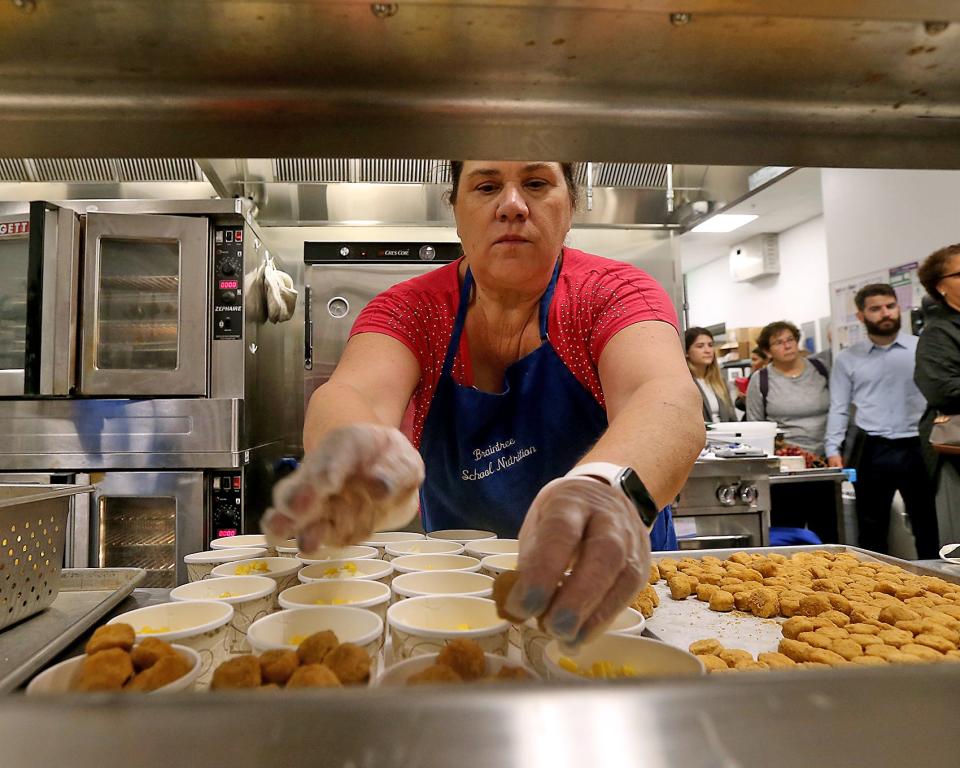
“They have access to quality meals,” Keenan said, adding “the smoothie looked healthier, and definitely tastier, than the slimy bologna sandwiches that had been in my locker all morning that I (used to eat) for lunch.”
Braintree Mayor Charles C. Kokoras said he was one of the kids traumatized in middle school by having to use a “free” lunch card.
Embarrassment, stigma banished with universal free lunch
“I was one of those kids who had a lunch pass,” Kokoras said. “I didn’t want to be in line with someone who was paying.”
Embarrassment did not begin to describe how it felt.
“Sometimes I didn’t eat lunch,” Kokoras reminisced. “It’s incredible there’s no stigma to providing free meals to children every day. This is very personal and important.”
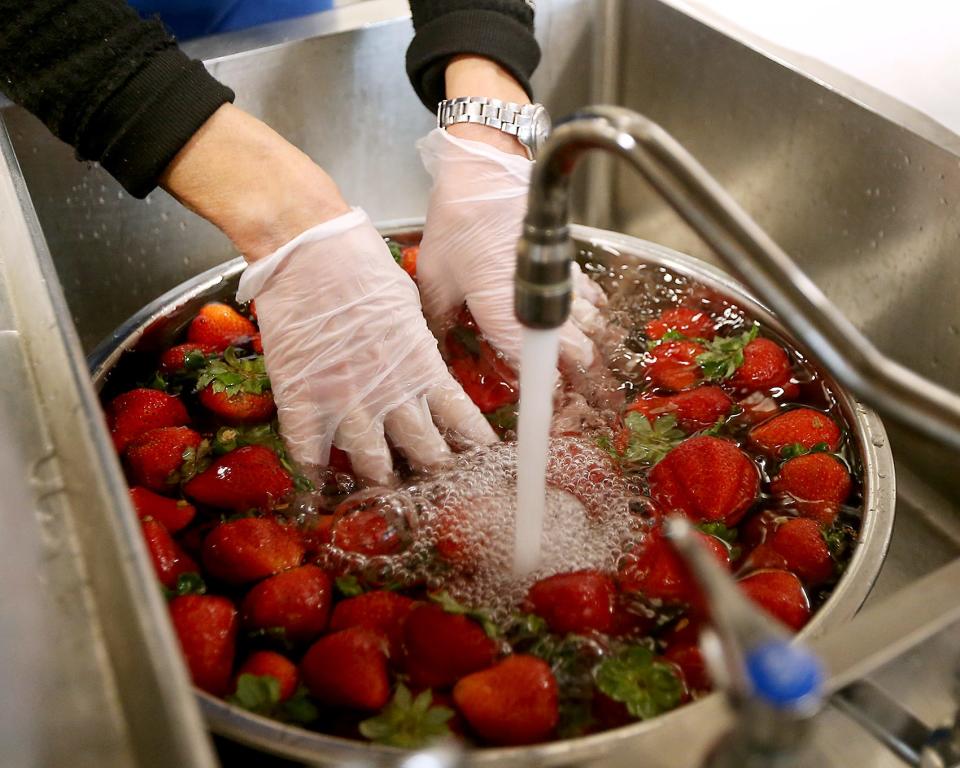
Principal John Sheehan said the benefits of the program are extensive: lunch lines move faster; kids have more time to eat, and they are offered nutritious meals “without a side of stigma.”
DiDomenico bragged about the state’s status as a leader in fighting childhood hunger, reinforced at the recent White House Conference on Hunger, Nutrition and Health convened by President Joe Biden, the first such conference in more than 50 years. The first was held in 1969 and made the National School Breakfast Program permanent, extended SNAP benefits and created the nutritional support program: Women, Infants & Children.
Medical discoveries in New EnglandMulti-cancer early detection tests could save lives, but we still have a lot to learn.
At the meeting, DiDomenico said, the state’s commitment to extending the universal free lunch program was widely applauded.
“It was a team effort,” DiDomenico said of the legislation passed to extend the program. He noted that the state’s investments in schools, programs, personnel, equipment and curriculum are all moot if children are hungry and not able to focus on learning.
This article originally appeared on Telegram & Gazette: MA students received free school lunch during COVD. What comes next?

